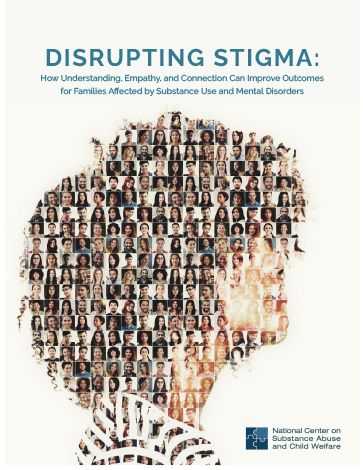Disrupting Stigma: How Understanding, Empathy, and Connection Can Improve Outcomes for Families Affected by Substance Use Disorders

National Center on Substance Abuse and Child Welfare, 2022
Stigma affects the attitudes and actions of healthcare and treatment professionals; child welfare and court professionals; social service agencies and workers; as well as family, friends, and most notably, the person with the SUD. Negative attitudes create barriers for parents seeking help and exacerbate existing disparities in treatment services and outcomes, driving away the very parents and families we seek to serve. This brief supports cross-system collaborative teams in their work to reduce stigma in interactions, expectations, and policies affecting families. It provides several strategies to fight stigma and facilitate engagement with parents and family members affected by SUDs.
For more information, watch the companion webinar, Disrupting Stigma: A Virtual Conversation.
Topic(s): Advancing Equity in Access to Care
Section: Policy and Practice Resources
